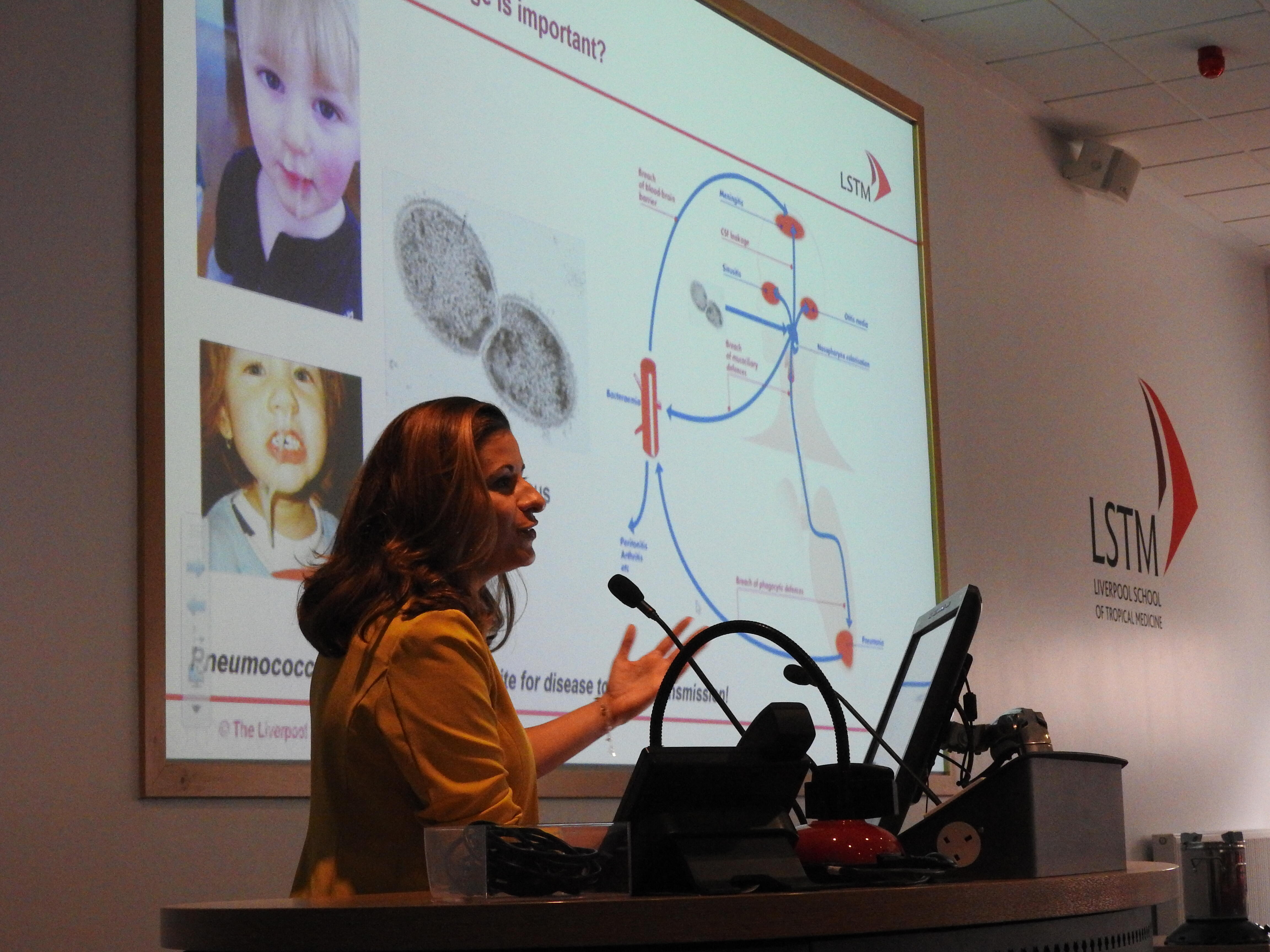
LSTM’s Seminar Series continued this week with a talk from Drs Kevin Mortimer and Daniela Ferreira. Entitled: Pneumonia preventions strategies: Cookstoves are dead…long live the vaccine! Their talk was introduced by Professor Luis Cuevas head of LSTM’s Department of Clinical Sciences.
Dr Mortimer, a respiratory consultant at Aintree University Hospital and a Reader at LSTM, began by asking why we should care about air? Looking at the Global Burden of Disease Study 2010 estimating that the inhalation of polluted air is the leading risk factor for death and disability globally. When looking at household air pollution he focussed on cooking with biomass fuels, with over half world’s population (?) cooking this way, using found fuels such as dung, wood, crop residues and charcoal and described the adverse health effects associated with the smoke burned by biomass fuels.
Dr Mortimer went to look at potential solutions to this including the use of clean cookstoves and the claims made by the Global Alliance for Clean Cookstoves, that clean cookstoves can save lives and reduce illness, prompting billions of dollars in charitable donations. He talked through his recently completed Cooking a Pneumonia Study (CAPs) in Malawi explaining that, like previous studies looking at the health impacts of cleaner cookstoves, there was no evidence that they reduced cases of pneumonia in the under 5s. He concluded that while cleaner cookstoves might be part of a wider solution, clean air was still out of reach for many people.
Handing over to Dr Ferreira, a Senior Lecturer and head of LSTM’s vaccine group to talk about importance of vaccines to prevent pneumonia. She looked at existing vaccines to prevent pneumococcal disease, caused by pneumococcus bacteria and including pneumonia, meningitis and invasive pneumococcal disease. While there is an effective vaccine for children it only offers protection against 13 of the 94 types of bacteria and is expensive, while the commonly used one for adults is cheaper, protects against 23 types, but is not very effective.
Bringing new vaccines to market is expensive and takes a long time and she explained that work being carried out at LSTM would be able to speed up the current time required and reduce the cost or the current development pipeline. Her team’s work at LSTM has included the development of the unique Experiment Human Pneumococcal Carriage model, which is used to induce carriage of bacteria in the nose, which is very common in children and still there in many adults, to understand better the relationship between carriage and immunity as well as to test novel vaccines.
After talking through some of the recent work of the team in testing vaccines and researching the relationship between the flu virus and pneumonia using the model, Dr Ferreira gave examples of some of the modern diagnostics and assays being used at LSTM and how we might move to new vaccines that are more effective against a greater number of types of pneumococcus, offer herd immunity and be suitable across all different ages and geographical locations.
You can watch the seminar here.